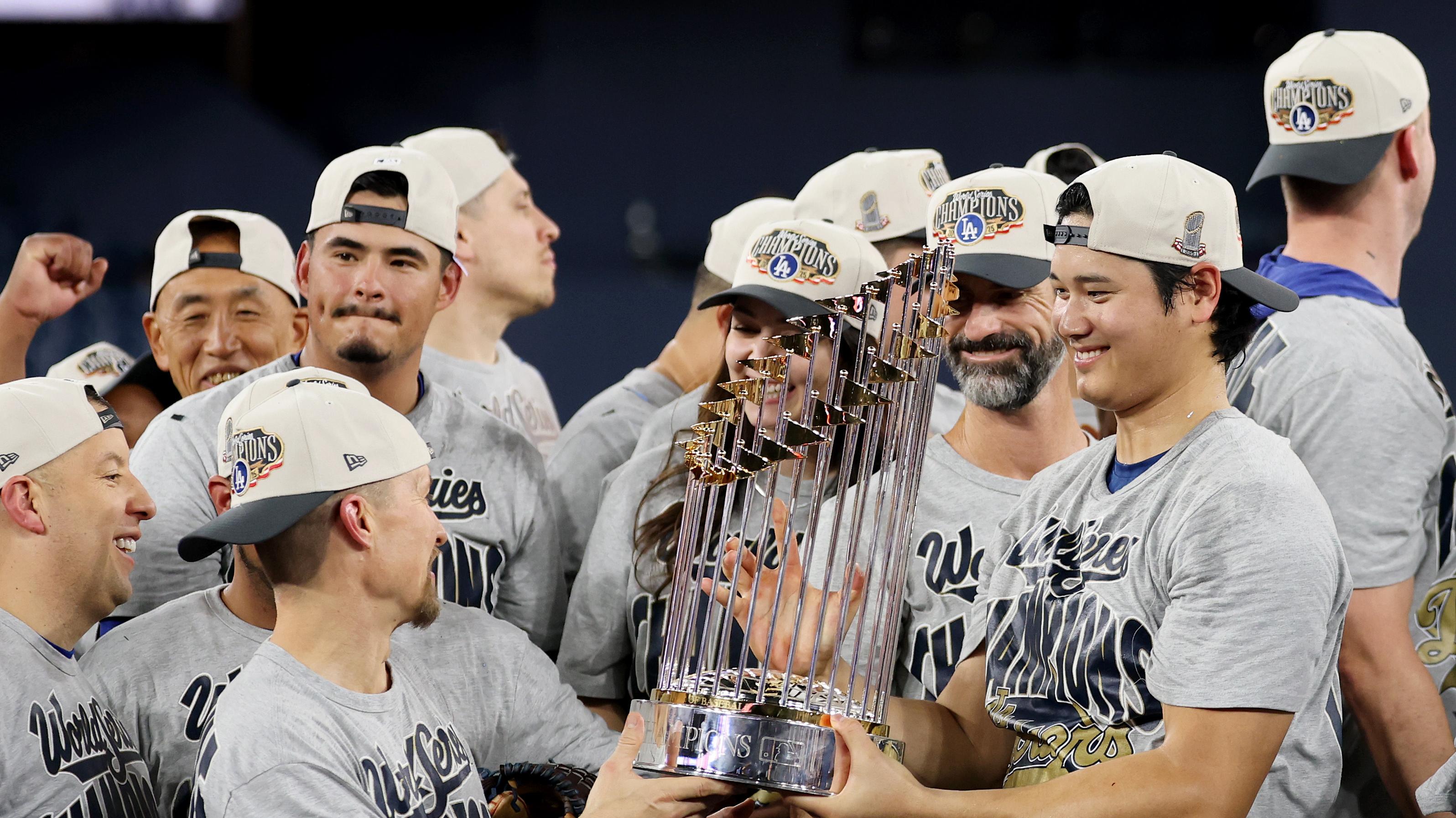Featured Video
Dodgers First Repeat Winners in 25 Years 💍
.png)
2025 MLB Wild Card Game 2 Winners and Losers
In years past, two games was typically enough to decide Major League Baseball's best-of-three wild card series. Since the expansion to 12 teams, 10 of those 12 first-round series ended in sweeps.
Wednesday's quartet of Game 2s deviated from that script, though, setting up what will be a nearly full Thursday of guaranteed drama.
Cleveland, San Diego and New York all fought back to force a decisive third game, while only the Los Angeles Dodgers managed to finish off their series a day early.
To recap the day that was, we've put together a big winner and a big loser for each team that played. We'll also culminate with a bonus, over-arching winner from Wednesday's action.
Wild Card Game 2 Results
1 of 10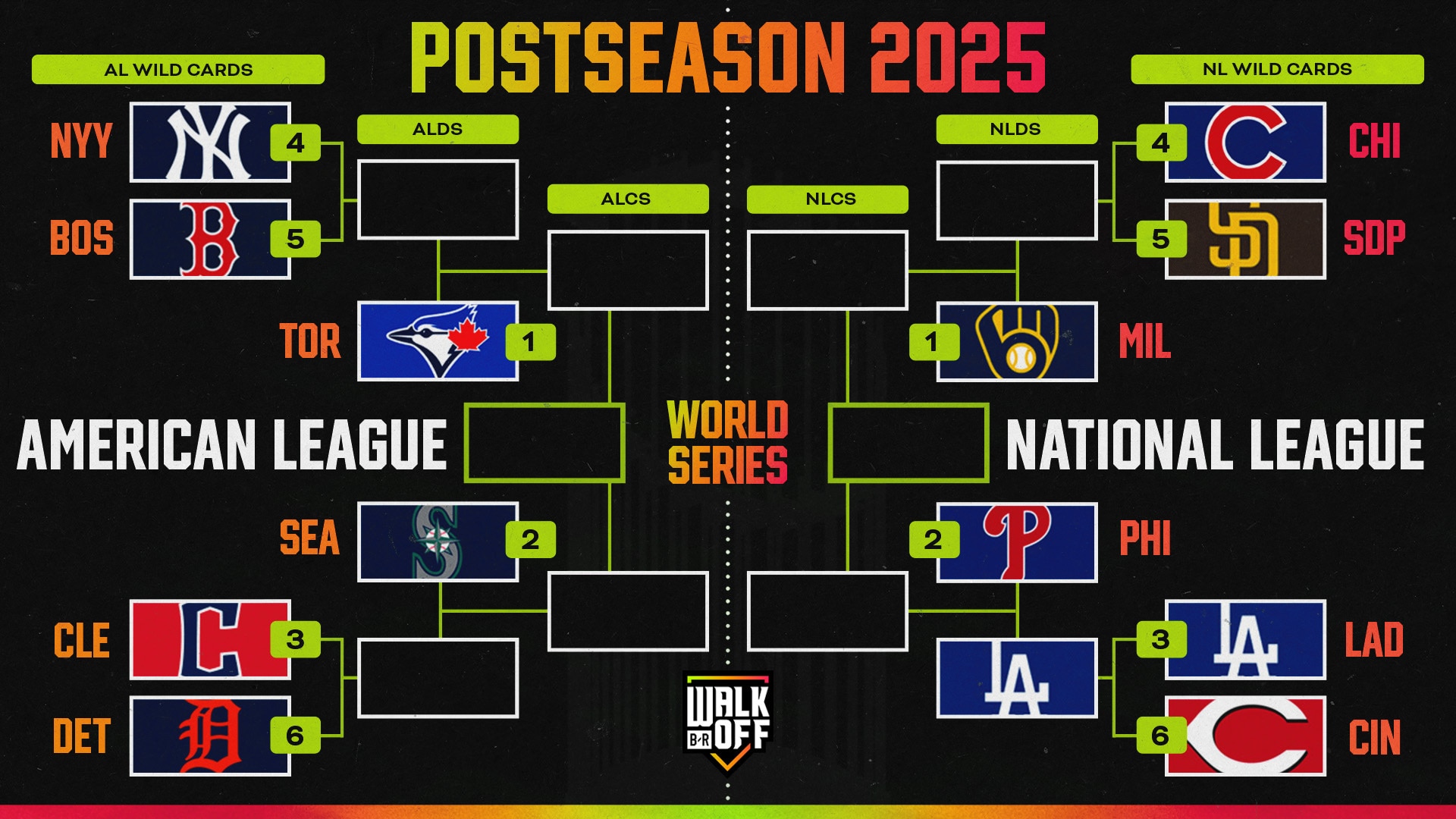
AL Wild Card: No. 6 Detroit Tigers @ No. 3 Cleveland Guardians
- Wednesday Result: Guardians 6, Tigers 1
- Series Status: Tied at 1-1
NL Wild Card: No. 5 San Diego Padres @ No. 4 Chicago Cubs
- Wednesday Result: Padres 3, Cubs 0
- Series Status: Tied at 1-1
AL Wild Card: No. 5 Boston Red Sox @ No. 4 New York Yankees
- Wednesday Result: Yankees 4, Red Sox 3
- Series Status: Tied at 1-1
NL Wild Card: No. 6 Cincinnati Reds @ No. 3 Los Angeles Dodgers
- Wednesday Result: Dodgers 8, Reds 4
- Series Status: Dodgers win 2-0, will face Philadelphia in NLDS
Cleveland Guardians Winners and Losers
2 of 10
Winner: Chase DeLauter's MLB Debut
During the broadcast of this game, we were told approximately 573 times that Chase DeLauter was just the sixth player in MLB history to make his MLB debut during the postseason.
It was an understandable and cool point to belabor. Quite the anomaly to turn to a true-blue rookie at the most important point in the season, and a real testament to the woeful state of Cleveland's outfield (aside from Steven Kwan) over the past six months.
What we weren't told at any point, however, is how those other five debuts panned out.
As it turns out, every single one of them—Alex Kiriloff, Shane McClanahan and Ryan Weathers in 2020, Adalberto Mondesi in the 2015 World Series and Mark Kiger in 2006—played for the team that lost that game.
But thanks in part to his ginormous outfield assist, DeLauter became the first player to win while making his MLB debut in the postseason.
Of course, the win was mostly thanks to Brayan Rocchio's tie-breaking home run and Bo Naylor's subsequent insurance-providing three-run blast in the eighth inning. But the rookie did play his part well, considering he hadn't even played in a minor league game since before the All-Star Break.
Loser: Inexperienced Outfield Defense
Not only was DeLauter starting in center while making his MLB debut, but September call-up George Valera was starting in right field, having logged just 32 defensive innings in his big league career.
And on an afternoon with wicked wind gusts and blinding sunshine, that inexperience was painfully put to the test.
It took all of five pitches for a ball to find DeLauter, and he misplayed it, committing an error before his first-ever plate appearance. While it didn't result in any runs, it did lead to Tanner Bibee having a much higher-stress first inning, which contributed to his inability to survive five innings. DeLauter also had a real adventure of a catch to end the sixth inning.
In the fourth inning, Riley Greene lined what should have been a single to right field, except Valera misplayed it and it skipped to the wall. It wasn't officially an error because he didn't even get a glove on the ball, but it was another free base caused by inexperienced defense. This one led to a run—though, DeLauter's heads up throw to third base to cut down Zach McKinstry kept it from resulting in multiple runs.
Detroit Tigers Winners and Losers
3 of 10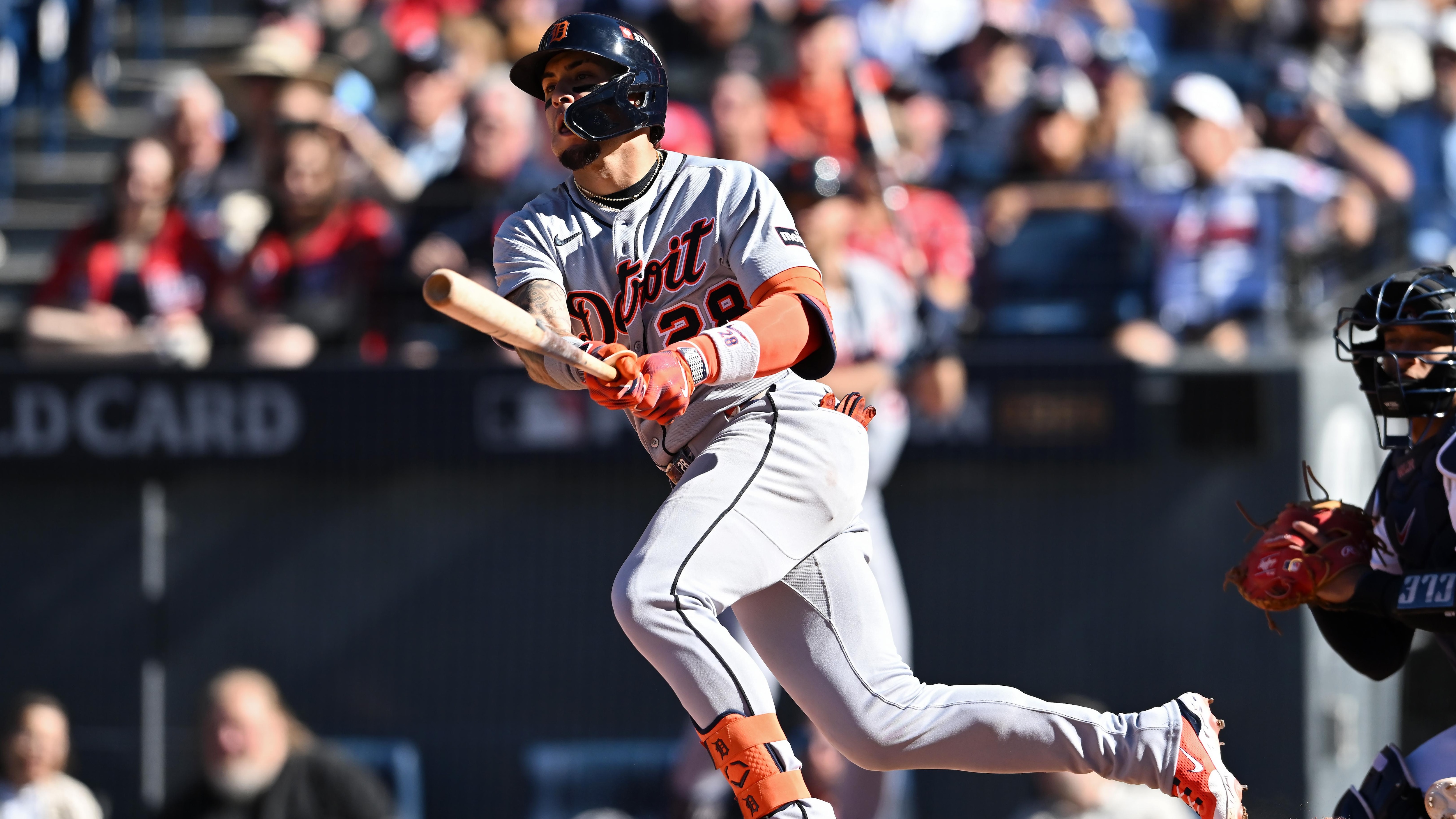
Winner: Javier Báez
Stranding runners on base was an unfortunate theme of the day for Detroit. With the exception of the second inning, they got at least one runner to second base in every single frame.
Yet in their 15 at-bats with runners in scoring position, they managed one measly hit and one lousy run.
A tip of the cap to the $140M 9-hole hitter, though, for being the one Tiger to deliver in the clutch.
As was the case in Game 1, Javier Báez provided a pair of singles, improving to 4-for-7 in this postseason. And one of Wednesday's two hits came with the bases juiced and would have produced a pair of runs had Dillon Dingler made it to the plate before Zach McKinstry got tagged out at third base.
Loser: Pinch Hitting for Riley Greene
Riley Greene led the Tigers this season in hits, runs, doubles, home runs, RBI and total bases. He was for Detroit's offense what Elly De La Cruz was for the Cincinnati Reds—the lone reliable weapon.
But after Greene went 2-for-6 and scored two of Detroit's first three runs of this series, A.J. Hinch decided to play some 4D chess and pinch hit Jahmai Jones for Greene in the top of the 7th inning with one out and men on the corners in a tie game.
In a vacuum, sure, it was a more than defensible move. Cleveland had just gone to left-handed reliever Tim Herrin, who has been excellent against left-handed hitters throughout his career. And while Greene was way worse this season against southpaws (.620 OPS) than he was against righties (.886 OPS), Jones was lethal against lefties to the tune of a .970 OPS.
How do you justify pulling your best hitter, though? Especially in a tie game when it was a near certainty that spot in the lineup would come up again?
The gambit failed. Jones struck out. (Though, he definitely should have walked. Bring on the ABS era.) The Tigers stranded two more runners. And when what had been Greene's spot in the order came up again in the ninth, Justyn-Henry Malloy pinch hit for Andy Ibáñez and struck out looking.
Hinch is one of the best in the business because of his willingness to trust the numbers and rely on splits in situations exactly like these. But taking the bat out of the hands of your biggest star (not named Tarik Skubal) just because the Win Probability Added says to do it is a serious "failing to see the forest for the trees" predicament.
Let's just say we would never expect to see De La Cruz pulled for a pinch hitter in that moment.
San Diego Padres Winners and Losers
4 of 10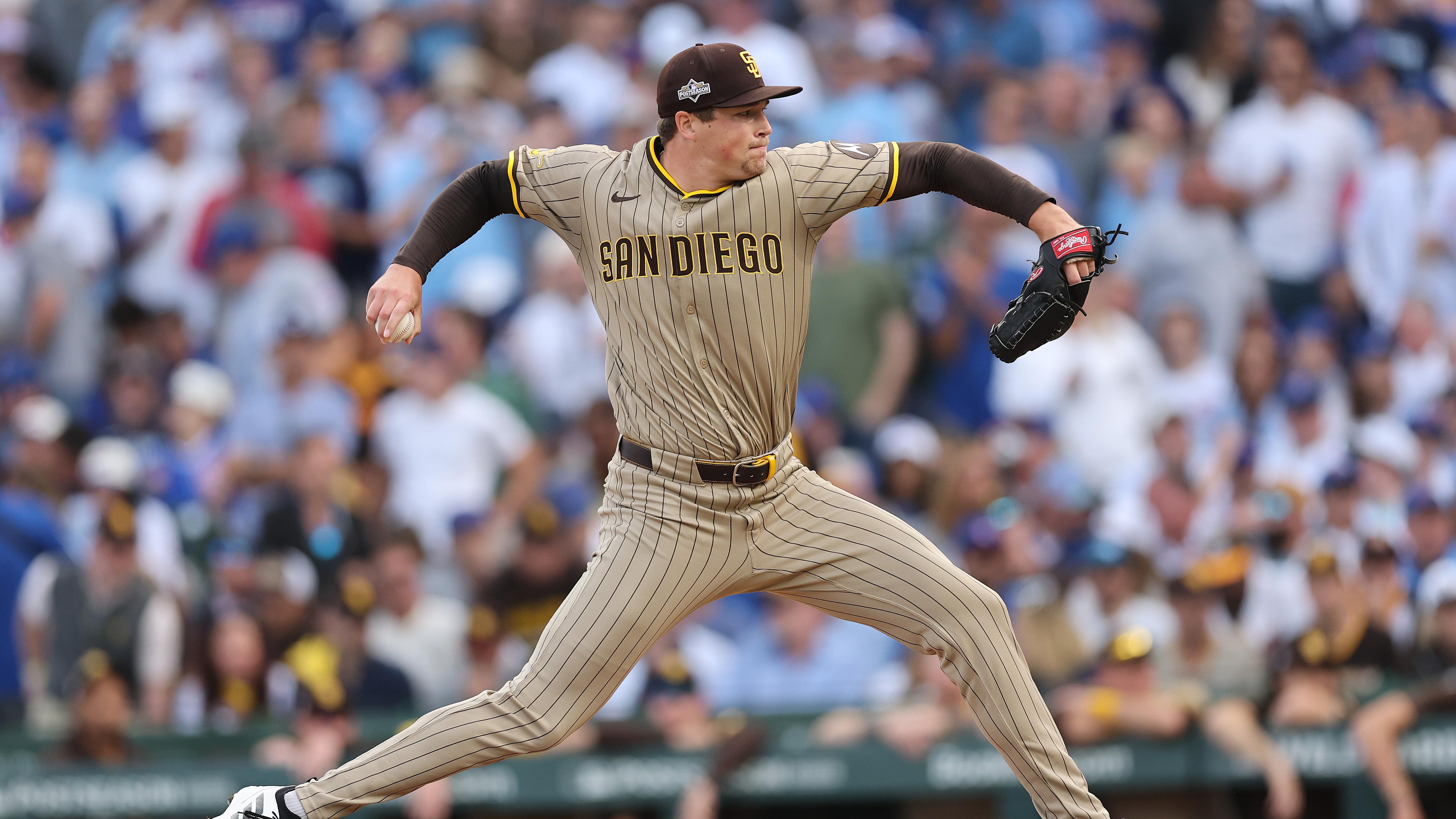
Winner: Mason Miller and the Padres Bullpen
If you weren't already familiar with the phenomenon that is Mason Miller, goodness gracious, have you been treated to an entertaining introduction this week.
He faced three batters in Game 1 and struck them all out.
He faced the same three batters in Game 2 and struck them all out, including absolutely painting the fastest pitch in MLB postseason history to poor Carson Kelly.
He proceeded to strike out two more batters in the 8th inning before grazing Michael Busch's pant leg for an HBP—the only plausible way to reach base against this guy.
Miller now has a line of 24.0 IP, 4 H, 0 R, 9 BB, 50 K dating back to August 6, which would be preposterous even in a video game.
It was much more than just Miller, though. Adrián Morejón started the relief effort by retiring seven consecutive batters. Then, after Miller glitched everyone's brains, Robert Suarez came on for a four-out save.
All told, the bullpen went 5.1 scoreless innings, setting up a colossal Game 3 on Thursday.
Which of those three elite relievers will actually be available for Game 3? We shall see. It was a virtually flawless execution in an "all hands on deck" situation to live to see another day.
Loser: Hitting in the Clutch
While Manny Machado's no-doubter home run off Shota Imanaga was a very loud exception to the rule, the Padres mostly failed miserably with runners in scoring position on Wednesday.
In fact, it wasn't until Machado's third AB with ducks on the pond that he finally came through for them. He went 1-for-3, Jake Cronenworth was 0-for-2 and six other Padres blew a golden opportunity en route to a 1-for-11 afternoon.
As luck would have it, they didn't even need Machado's home run, as the Cubs were held scoreless. But if they expect to actually make any sort of run this postseason, they'll need to hit better than .091 in those moments.
Chicago Cubs Winners and Losers
5 of 10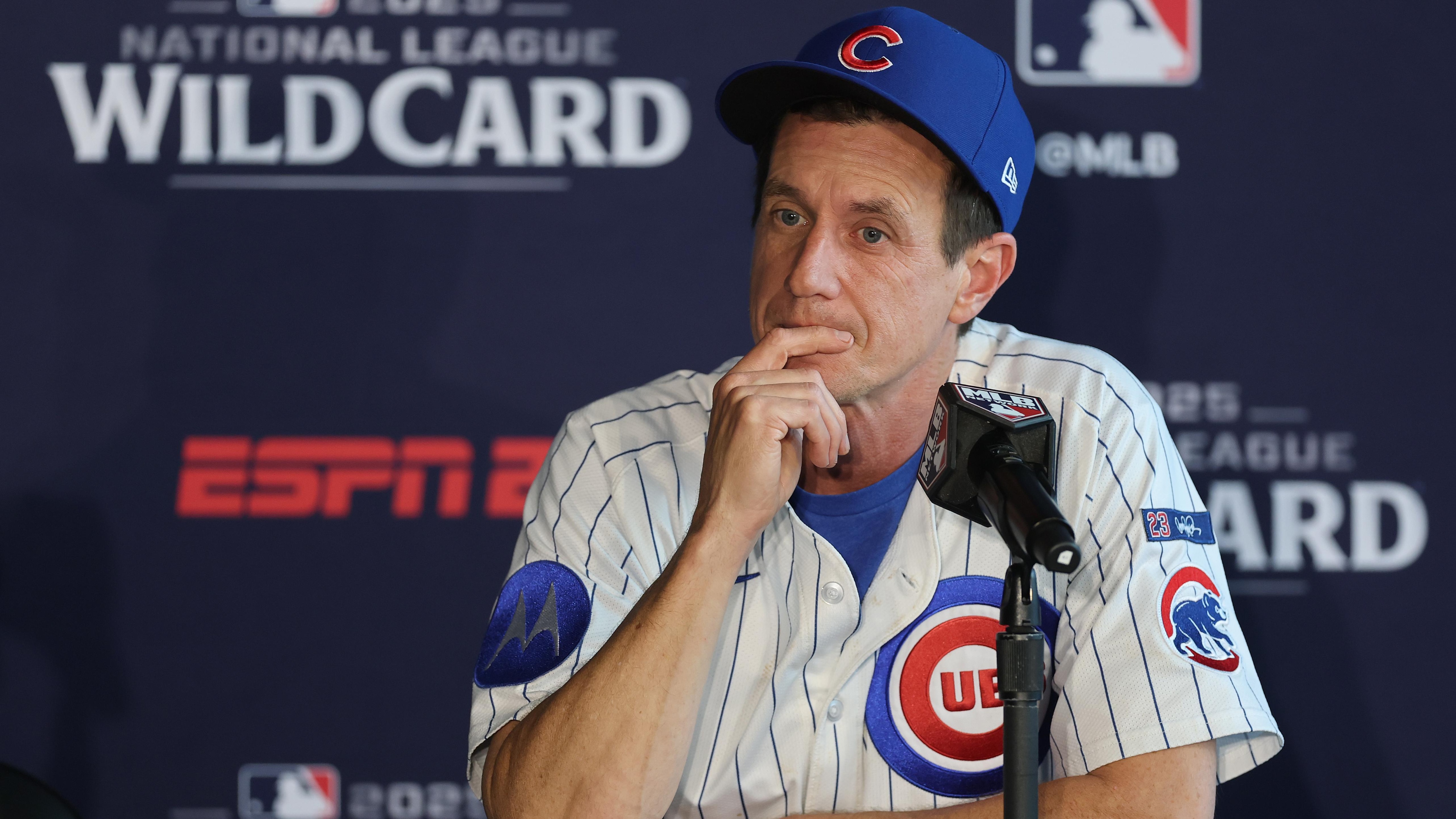
Winner: The Silver Lining of Having the More Rested Bullpen
Listen, it's hard to find a winner on the Cubs side of things here.
Could have maybe gone with Seiya Suzuki, who had their lone extra-base hit, who helped drive up Dylan Cease's pitch count and who almost drew a walk against the unbelievable Mason Miller.
When you end the game by grounding into a 6-4-3 DP, though, you can't be crowned the winner.
But while the Padres allowed all three of their best relievers to pitch multiple innings—after two of the three also pitched in Game 1—it feels like a moral victory that the Cubs didn't use any of Daniel Palencia, Drew Pomeranz or Brad Keller in this one, meaning they will be fresh for Game 3.
Now, they do need to, you know, score some runs tomorrow for that to matter. Yet, for what will probably be Yu Darvish vs. Jameson Taillon on Thursday, having the more rested bullpen feels like a potentially huge deal.
Loser: Craig Counsell's Opener Approach
Since the All-Star Break, no one in Major League Baseball had allowed more home runs than Shota Imanaga. In September alone, he allowed 10 dingers in 27.2 innings pitched. But with Cade Horton landing on the IL and Matt Boyd already pitching in Game 1, Counsell had little choice but to let Imanaga pitch at least four innings in Game 2.
What he didn't want, though, was for that home run bugaboo to bury the Cubs right away. So with Fernando Tatis Jr., Manny Machado and Co. looming in the first inning, Counsell went with Andrew Kittredge and his 1.86 ERA since early August as the opener, hoping to at least get into the bottom of the first with the game still tied.
It didn't work, though. The first two batters reached base against Kittredge and he allowed a run in a hurry.
But the bigger problem came in the fifth inning, when a now somewhat fatigued Imanaga had to navigate the top of the order. He walked Tatis before Machado obliterated a baseball over a Cubs bullpen that was surely wondering why that phone wasn't ringing yet.
Would it have made any difference to just go with Imanaga from the outset?
Well, probably not. In addition to his recent home run woes, Imanaga had a season-long first-inning problem, with a 7.20 ERA against in the first compared to a 3.00 mark in all other innings. But on both ends of it, the plan did kind of blow up in Counsell's face.
New York Yankees Winners and Losers
6 of 10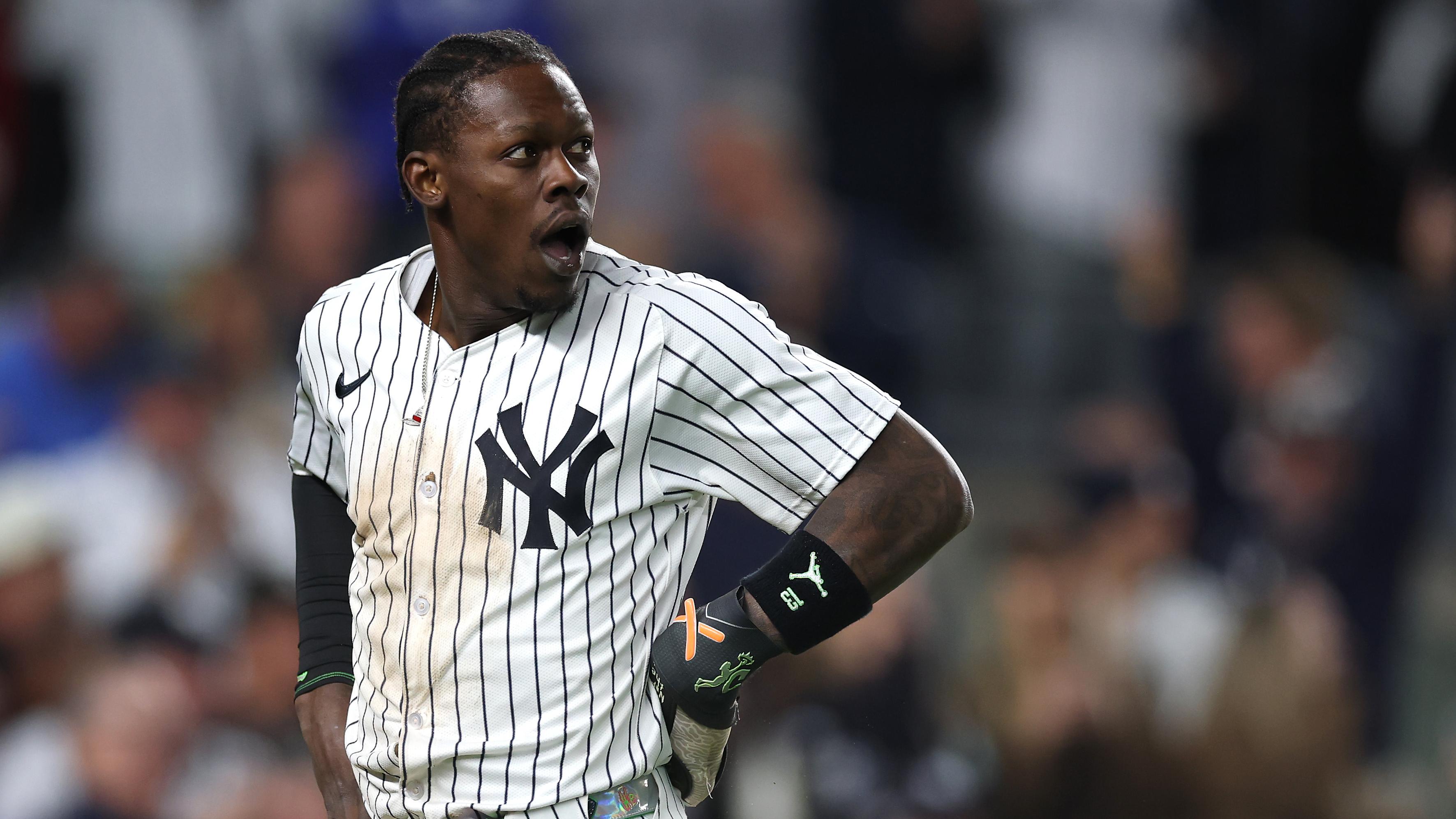
Winner: The Regulars Back in the Lineup
The inescapable narrative after Game 1 of this series was: Where were the regulars?
Desperate to combat Garrett Crochet's lethal left arm, Aaron Boone left all of Jazz Chihsolm Jr., Ben Rice and Ryan McMahon on the bench—and got a whole lot of nothing out of the likes of Amed Rosario and José Caballero in their place while losing that opener.
With a right-handed Brayan Bello on the bump for Game 2, though, it was back to the ol' faithful lineup.
And the dividends were immediate.
On the very first pitch that he saw, Rice delivered a two-run blast in the bottom of the first inning. He also singled later in the game.
Chisholm made a fantastic "doesn't show up in the box score" play with a diving stop on a Masataka Yoshida infield single, keeping Nate Eaton from scoring. He also scored from first on Trent Grisham's game-winning RBI single in the bottom of the eighth inning.
Even McMahon reached base twice via a walk and a single, and started a key double play in the sixth inning.
Couldn't ask for much better than that. A rare win for Boone, although most Yankees fans are probably still annoyed that those guys weren't in on Tuesday.
Loser: Giancarlo Stanton
Through his first six trips to the postseason, Stanton was approaching "all-time greatness" levels of production in October. In 41 career games, he had 18 home runs and an OPS just a shade under 1.000. Last year alone—back before we knew anything about torpedo bats—he crushed seven home runs, including two in the World Series.
But thus far this year?
He has been a ghost.
After going 0-for-4 with two whiffs and a GIDP in Game 1, Stanton went 0-for-4 again on Wednesday, hitting just one ball out of the infield through those first eight trips to the plate.
Is he saving the goods for Game 3?
Boston Red Sox Winners and Losers
7 of 10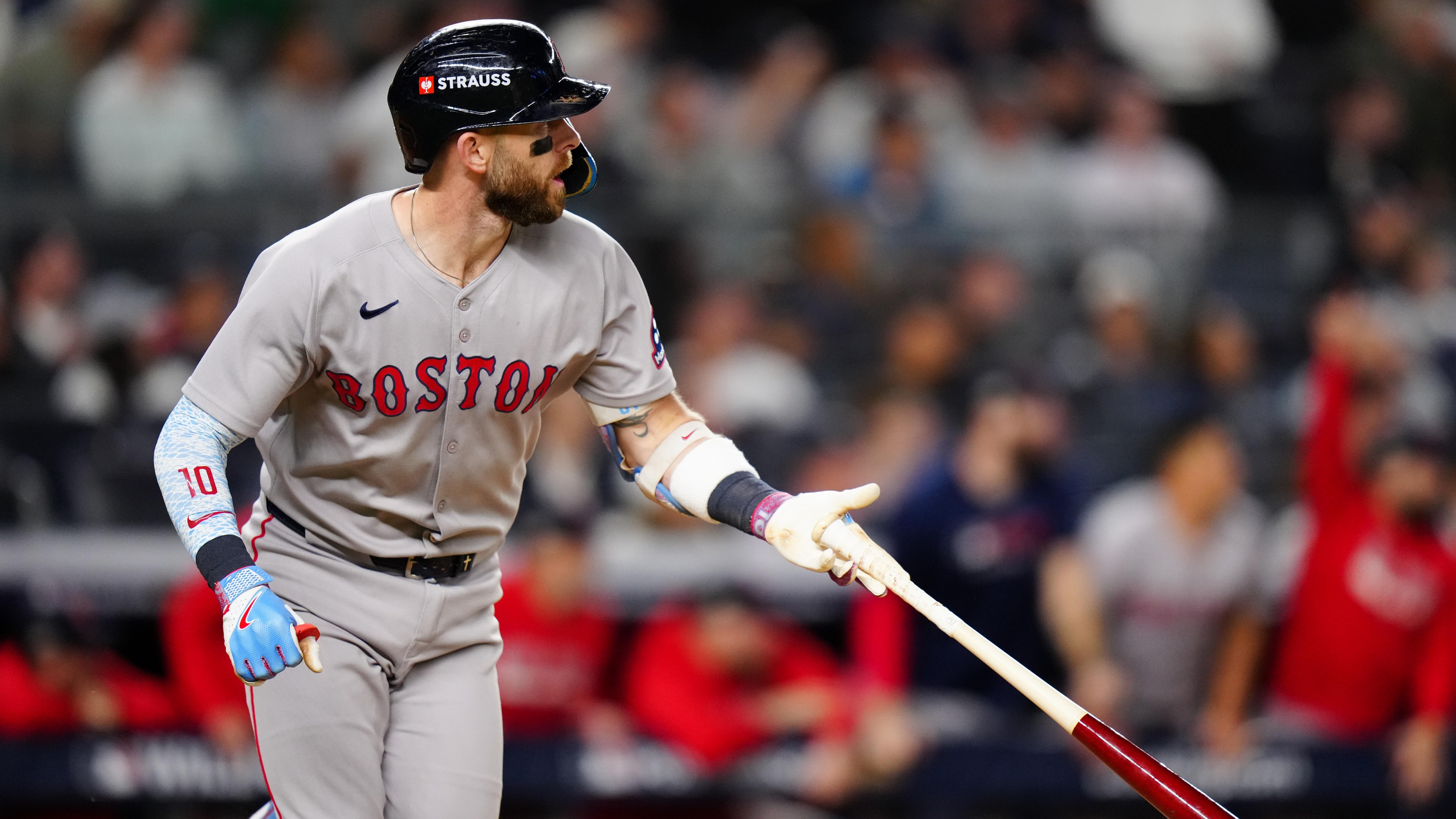
Winner: Trevor Story
Story was already the feel-good story of Boston's 2025 season.
After playing in a combined total of 69 games (with a .630 OPS) over the previous two seasons, Story led the Red Sox in a bunch of different categories. Hits. Runs. Home runs. RBI. Stolen bases. And least predictable of all: Games played.
Sure, they paid him quite handsomely four years ago to do this exact sort of thing. However, we all kind of gave up on that happening, viewing his contract as only marginally less of a sunk cost than those of Stephen Strasburg and Anthony Rendon.
He was back in rare form, though. And now back in the postseason for the first time in seven years, October baseball has been like riding a bicycle for him. He had multi-hit performances in three of his previous five playoff games with Colorado, and has given the Red Sox a pair of two-hit games thus far.
On Tuesday, it was two singles and a stolen base.
On Wednesday, it was a two-run single, a solo blast and all three of Boston's runs driven in.
Can't wait to see what he has up his sleeve for Thursday.
Loser: Riding Garrett Whitlock for Too Long
Boston used just two pitchers in Game 1, meaning there were 10 perfectly fresh arms ready to be deployed in Game 2.
For a while there, it looked like Alex Cora was hell-bent on using all 10 of them.
Brayan Bello got the hook after just 28 pitches. Justin Wilson and Steven Matz each faced five batters. Justin Slaten faced four. Zack Kelly struck out Anthony Volpe as the only hitter he faced.
Then Cora just decided it was "Whitlock or Bust" for the seventh and eighth innings.
Whitlock was a starting pitcher as recently as last season, but he hadn't thrown 25 pitches in an appearance since late June, got lit up all four times he made it to 35 pitches in the first half and had not reached 45 pitches all season.
He faced 10 batters, allowing each of the last four to reach base. He ended up throwing 47 pitches and took the loss.
To add insult to injury, Whitlock will probably not be available for Game 3, leaving the Red Sox without their second-most reliable reliever in what figures to be quite the bullpen game.
Los Angeles Dodgers Winners and Losers
8 of 10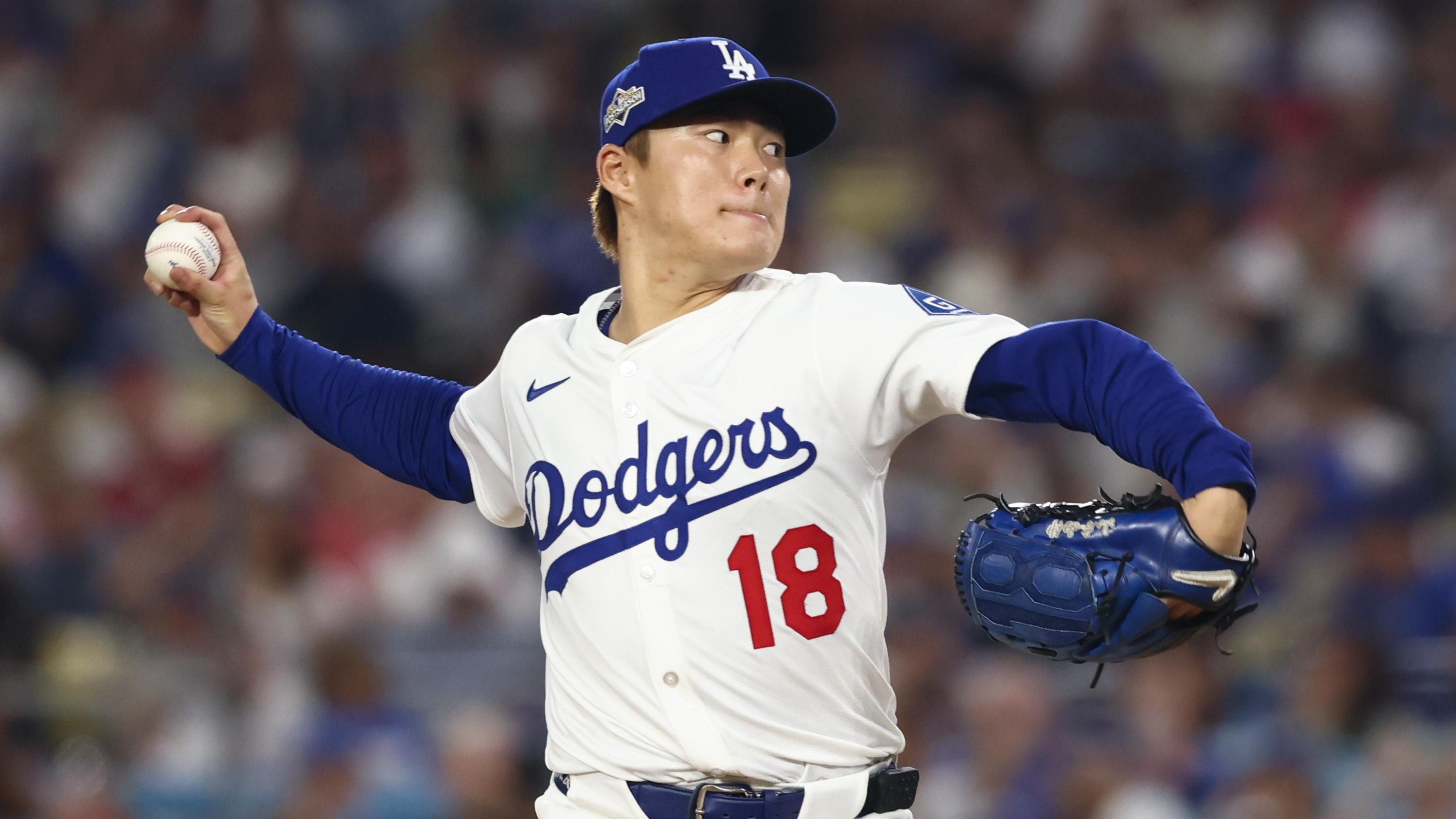
Winner: Yoshinobu Yamamoto
After Blake Snell shoved for seven innings in Game 1, Reds hitters had to wake up Wednesday morning relieved they wouldn't need to deal with that ace again.
Unfortunately, it was a different ace's turn to be even more dominant.
En route to a career-high 113 pitches thrown, Yamamoto at one point retired 16 consecutive Reds batters, six of them by strikeout. He ended the night with nine Ks, and the only two runs scored against him were unearned.
Of course, if you've watched him pitch lately, this is old hat.
Including the near no-hitter against Baltimore in early September, Yamamoto logged 34 innings with a 0.79 ERA over his final five starts, averaging 8.8 strikeouts and 4.4 hits/walks per game.
Almost comically, had there been a Game 3 in this series, the Dodgers would've handed the ball to a third ace in Tyler Glasnow, with fourth ace Shohei Ohtani presumably available in relief.
That forthcoming NLDS against the Phillies promises to be a fantastic matchup.
Loser: 8th Inning Deja Vu
Bullpen woes were, hands down, the biggest concern for the Dodgers heading into this postseason.
And though they doubled up the Reds in each of the two victories, they also doubled the fear that no lead is safe with these relief pitchers.
At least in Game 1, Cincinnati never quite got the tying run to the plate during a dramatic/traumatic eighth inning featuring 59 pitches by the Dodgers' bullpen.
On Wednesday, though, LA took what was an 8-2 lead and turned it into a full-blown panic attack.
Emmet Sheehan gave up two runs before bizarrely getting pulled in the middle of an AB. And when Alex Vesia subsequently walked 9-hole hitter Matt McLain (who struck out 3X against Yamamoto), TJ Friedl stepped in with the bases loaded and a chance to tie the game.
He didn't. The Dodgers won by four. But if 10-2 and 8-2 leads against the Reds weren't comfortable in the end, buckle up for when Dave Roberts has to figure out who to trust to protect a late one-run lead against one of the serious threats to win it all.
Cincinnati Reds Winners and Losers
9 of 10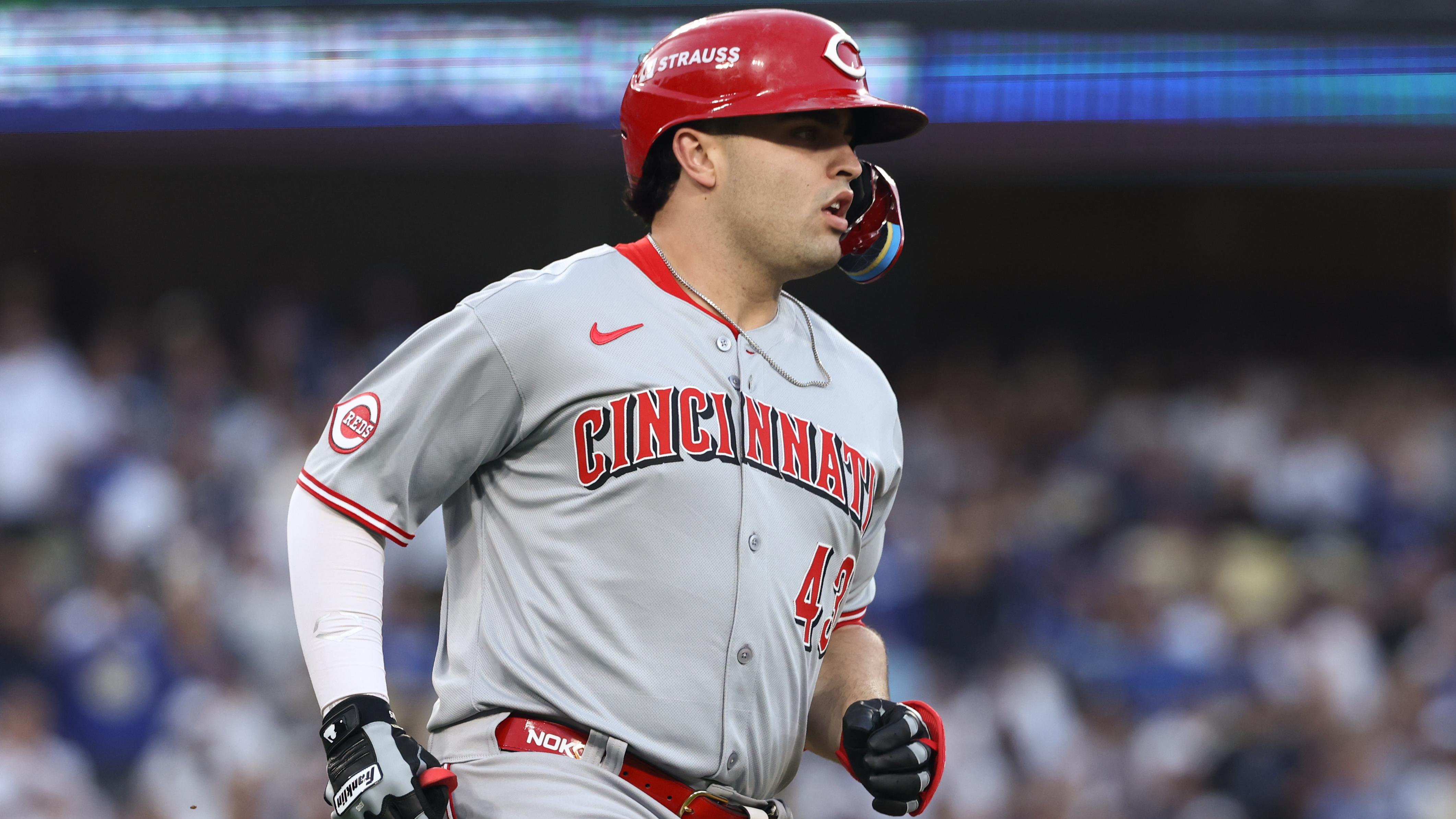
Winner: Sal Stewart
It was a very up-and-down game for the 21-year-old September call-up.
After Teoscar Hernández handed the Reds a free out in the first inning, it was Stewart who made the Dodgers pay with a two-run single. He subsequently stole second base, something he didn't do in 18 regular-season games played. He also made a couple of nice plays at first base and knocked in another RBI single in the eighth inning.
Unfortunately, he also struck out with the bases loaded in what could have been a colossal moment, and had a back-breaking throwing error a few minutes later.
He gave the Reds early hope, though, and he gives them hope that this trip to the postseason may have been more than just a one-year blip fueled by a Mets collapse. Early returns suggest he could be a major piece of the puzzle for years to come.
Loser: The Sixth Inning
Down 3-2 and searching for their first baserunner since the first inning, the Reds finally got a little something going in the sixth.
TJ Friedl led off with a single just past a diving Miguel Rojas. Spencer Steer followed with a 0-2 flare to center. Gavin Lux spiked one directly into the ground for an infield single that loaded the bases. And with the heart of the order coming up, for a brief moment, the Reds were actually favored on the win probability graph at 51.5 percent.
Less than 20 minutes later, though, they were basically dead.
After loading the bases with no outs, Austin Hays grounded into a force out at home, followed by Stewart and Elly De La Cruz consecutively striking out.
Things already felt like they were spiraling for the Reds, and then modern-day Mr. October Kiké Hernández led off the bottom of the sixth with a brutal single that hit third base. And after Stewart threw one away to Nick Martinez covering first base, the rout was officially on. The next five Dodgers reached base as a 3-2 nail-biter devolved into a 7-2 laugher in a hurry.
Bonus Winner: Bring on the "Loser Goes Home" Drama
10 of 10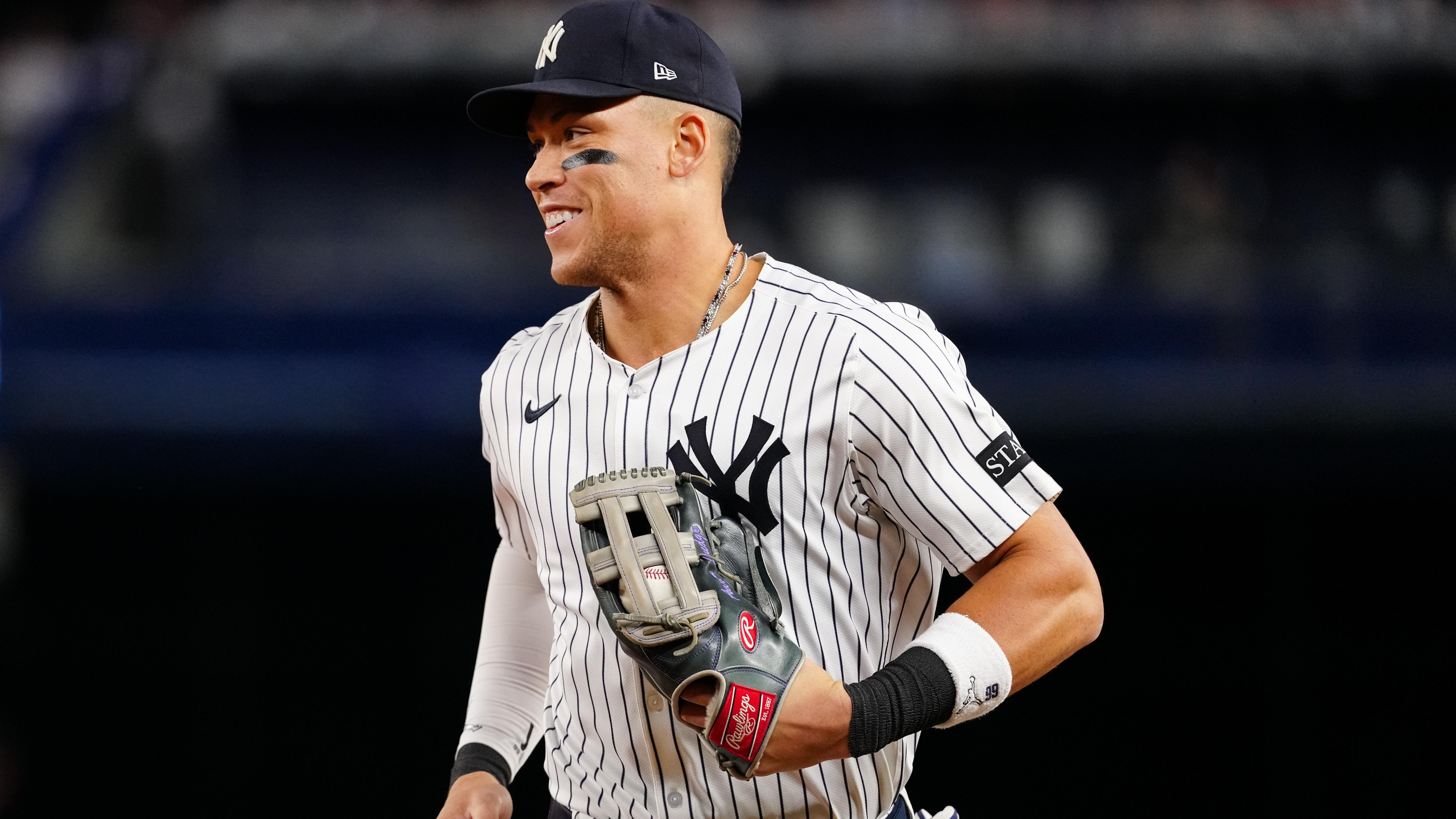
Quick question for Thursday: Is it Game 3s or Games 3?
You'll have to forgive us for not being sure how to pluralize something that we've previously never gotten multiples of before in the wild card round of this expanded postseason format.
Back in 2022, it was three sweeps and the 101-win Mets embarrassingly losing 2-1 to the Padres.
The following year, Thursday was just a bonus day off. Four sweeps. So lame.
Last October, it was once again only the Mets who spared us from a clean sweep of sweeps, this time on the winning end of a 2-1 series against the Brewers.
But this year, it'll be three tie-breaking battles in three series that have already been incredible.
Cleveland almost tied it up in the ninth of Game 1 before a monster eighth inning by the Guardians in Game 2 extended that series.
After the Cubs bullpen went 4.2 hitless innings to win Game 1, it was the Padres bullpen allowing just one hit in 5.1 scoreless innings to win Game 2. Runs are coming at quite a premium in that one.
And you just had to know Yankees-Red Sox would go the distance, right? The Yankees had the tying run at second base with no outs in the ninth inning of Game 1, but left 'em loaded. They proceeded to tie the series in dramatic fashion, scoring the game-winner on a close play at the plate with two outs in the eighth.
The only thing missing so far is extra innings and/or a walk-off.
Maybe we'll get a couple on Thursday as the field gets whittled down to eight remaining candidates to win the 2025 World Series.
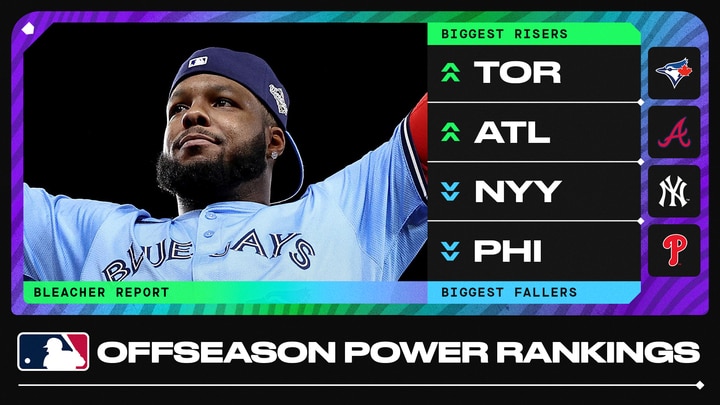
_0.jpg)
.png)
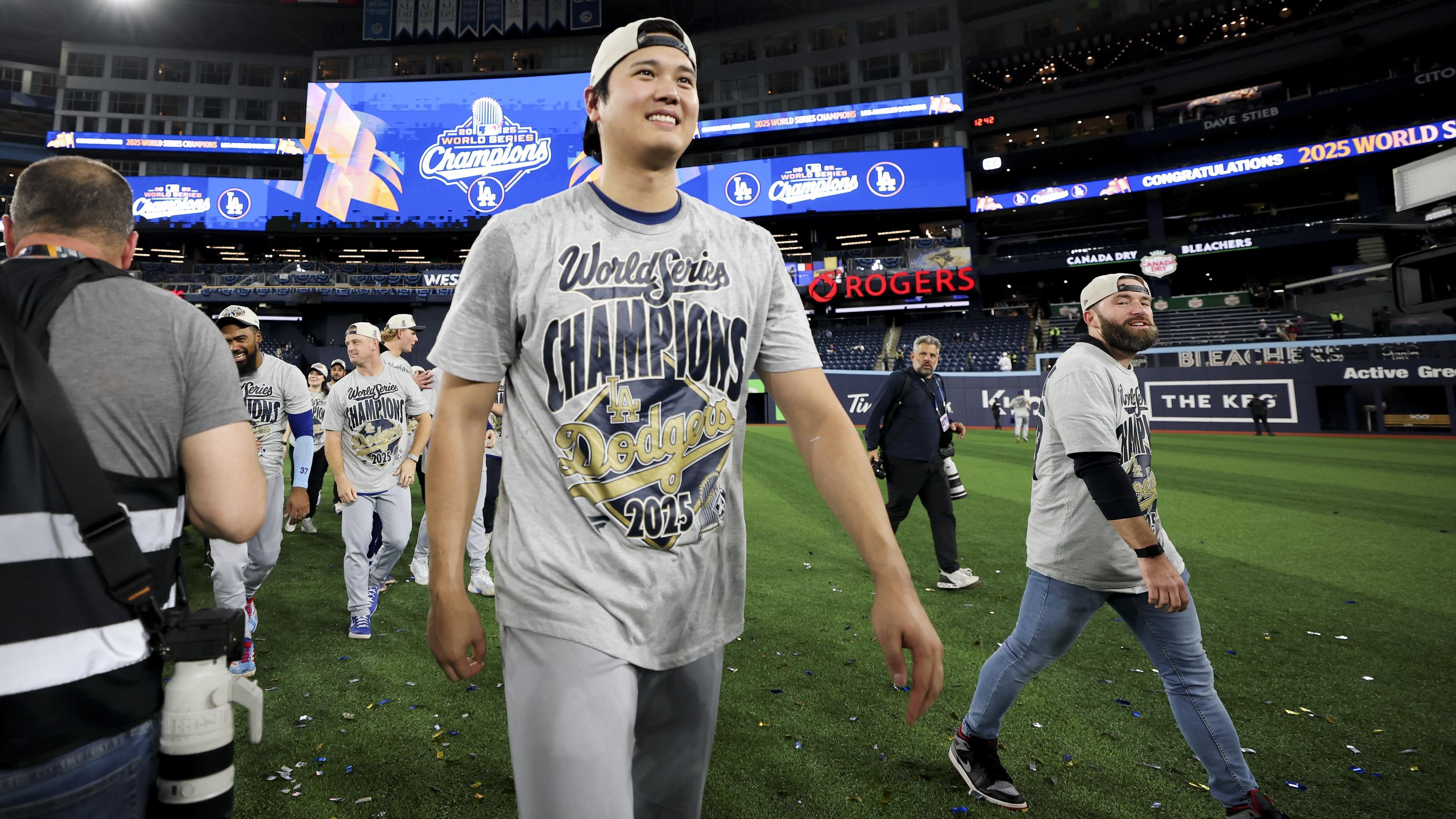
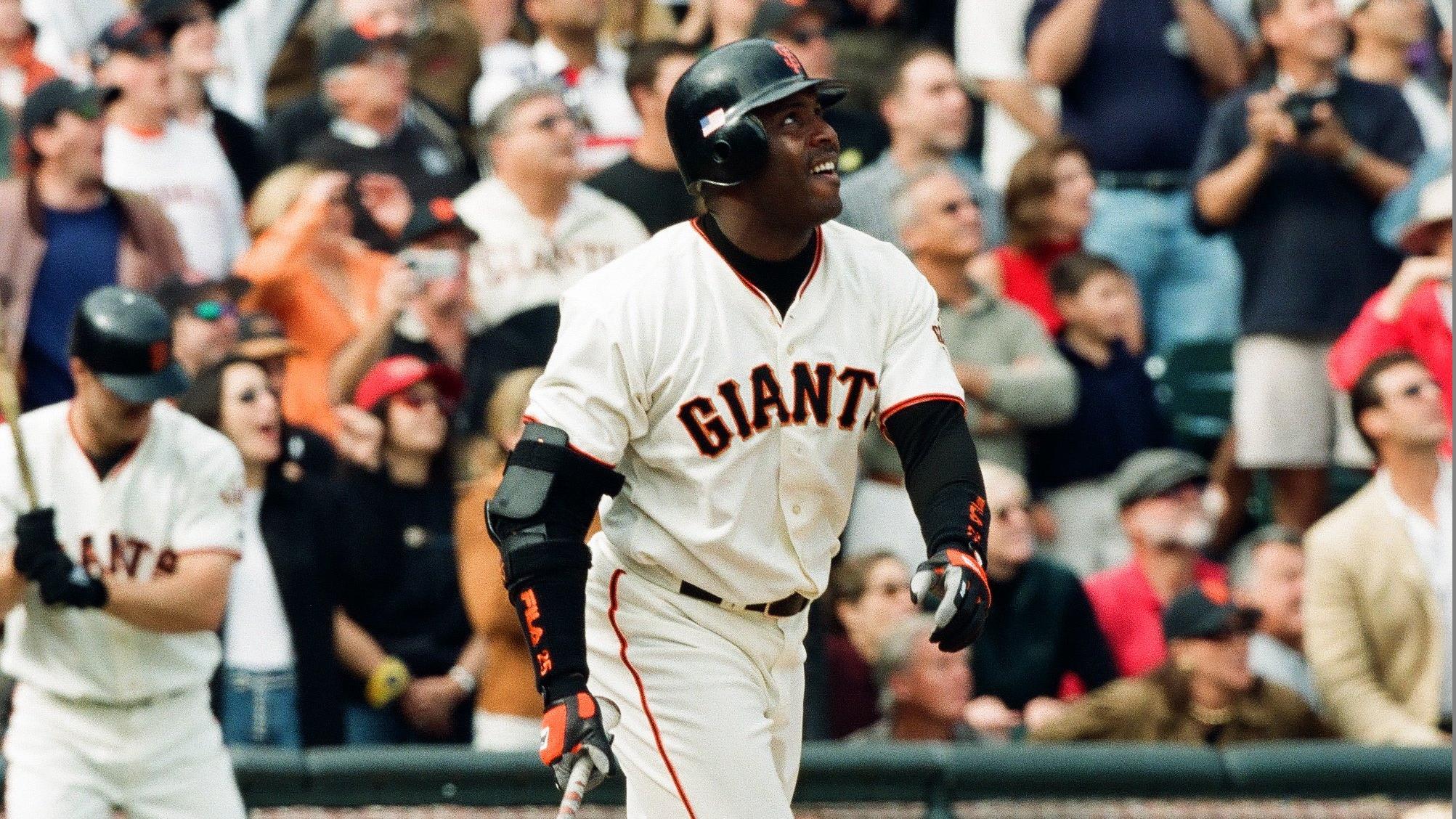

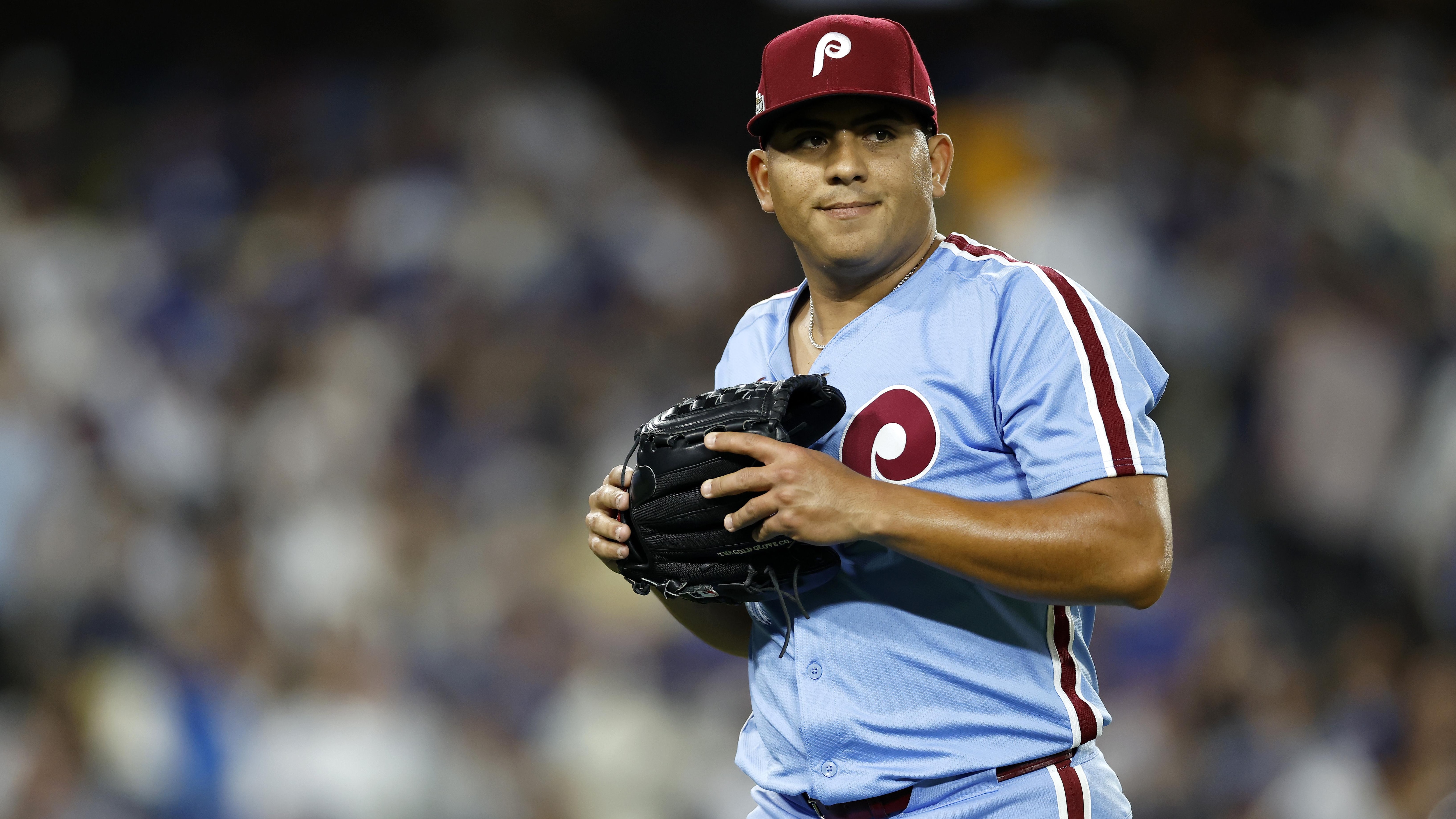
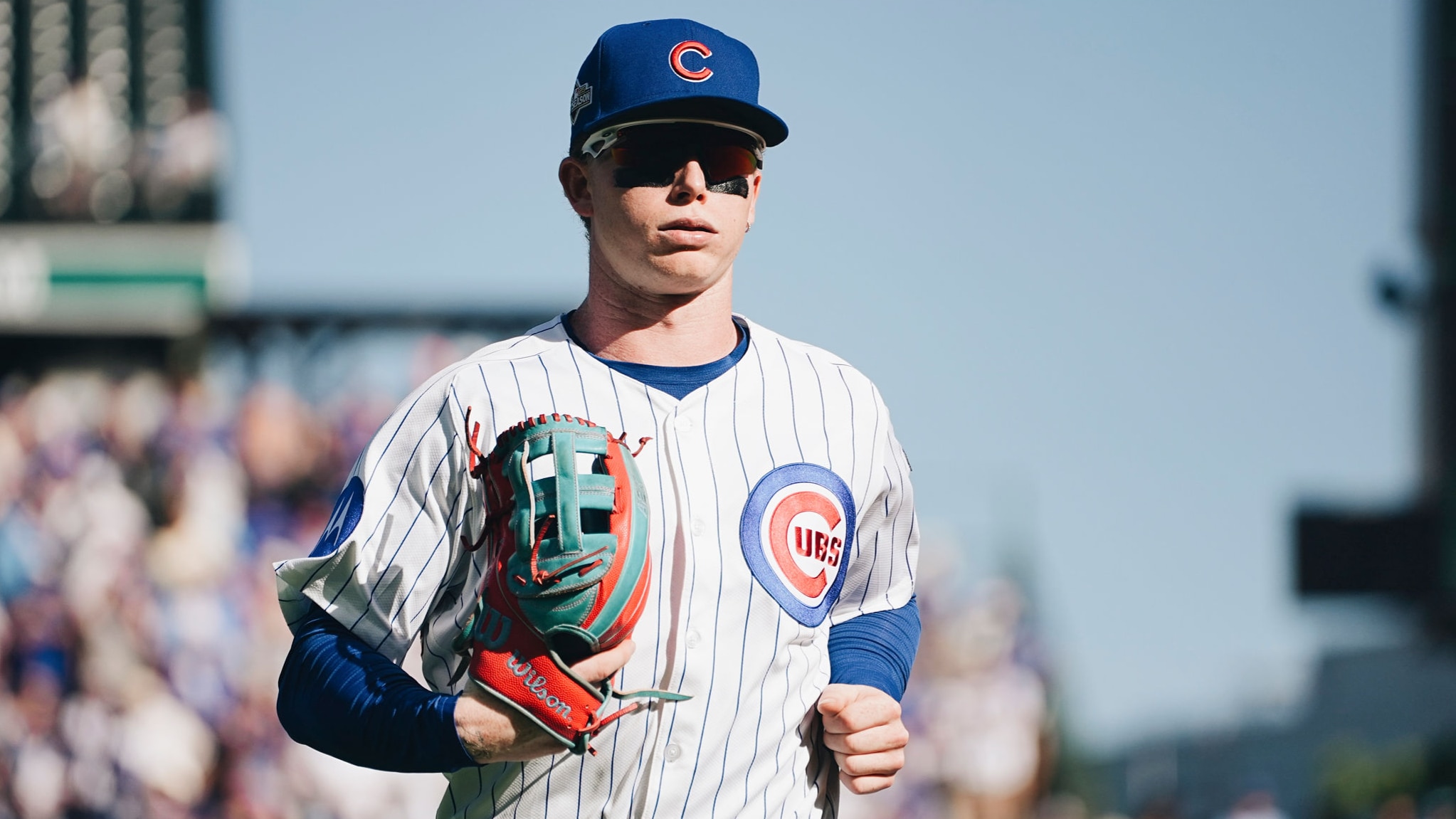
.jpg)
